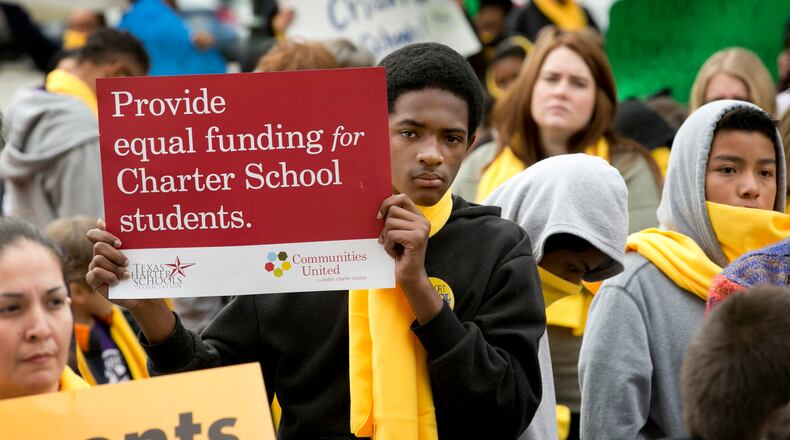Matthew L. Evans serves as the manager of advocacy & community engagement for KIPP Metro Atlanta Schools. In this guest column, he maintains charter school funding falls short in Georgia and urges the General Assembly to address the issue.
By Matthew L. Evans
No matter where they live, all students deserve the opportunity to receive a quality public education. Their future opportunity for success should not be driven by their ZIP code. Their demographics should not define their destinies.
There is no denying that the state of education in Georgia is changing. More options are now available for students in different areas around the state, including Atlanta, as charter schools continue to expand. Charter schools are public schools, required to teach to the same academic standards and to be measured by the same tests as other public schools in their district. A glaring difference, however, is in the amount of funding they receive.
Today in Atlanta, public charter schools receive as much as 30 percent less funding than traditional public schools within the same local school district. Why? Because they are not treated equitably by Georgia’s current education funding formula, one that was designed years before the passage of the state’s first public charter school law.
In 2015, Gov. Nathan Deal created the Education Reform Commission, a group of educators, legislators, administrators, community leaders and experts. This group was tasked with generating recommendations for improving education in the state. Through its work, the commission recognized the important role that charter schools play in the state’s system of public education and addressed this funding inequity in its final recommendations.
It was the opinion of the commission that charter schools should be funded equitably and that measures should be established to ensure that both state and federal funds are allocated appropriately to these public charter schools. Unfortunately, these reforms have yet to move forward, even as the legislative session heads into its final days.
Since the ERC published its recommendations, nearly two years have passed without action. The students in our state’s public charter schools should not have to wait any longer to be treated equitably, nor should the parents and educators who are committed to their success.
While true equity is not now on the table, House Bill 430 is a step in the right direction. The bill attempts to provide charter schools with their earned distribution of federal funds, access to unused public facilities, and improvements to the charter authorization process. As the debate continues, we are hopeful that the originally proposed language that would provide equitable funding for Georgia's charter schools will again be considered. On behalf of the many Georgia families whose children attend public charter schools, we urge our legislators to do so.
KIPP Metro Atlanta Schools is proving the possible, even in those communities where traditional schools have historically underperformed. KIPP’s first two KIPP Atlanta Collegiate classes graduated high school at an average rate of 93.5 percent (average of 2015 and 2016) compared to Atlanta Public Schools’ rate of 71.5 percent in 2015 and the state of GA rate of 79.2 percent in 2016.
This demonstrates that KIPP Metro Atlanta scholars graduate at a rate comparable to students from high-income families, and significantly higher than the 9 percent low-income average which is more representative of the communities served. These graduation rates also reveal the potential of students when supported in an environment that is committed to excellence and high expectations, like the schools managed by KIPP.
But these results do not happen easily, and can be more difficult for charters to achieve with reduced funding under the current formula. Just as all students deserve the same opportunity for success, all public schools deserve the same funding to provide that chance.
About the Author




